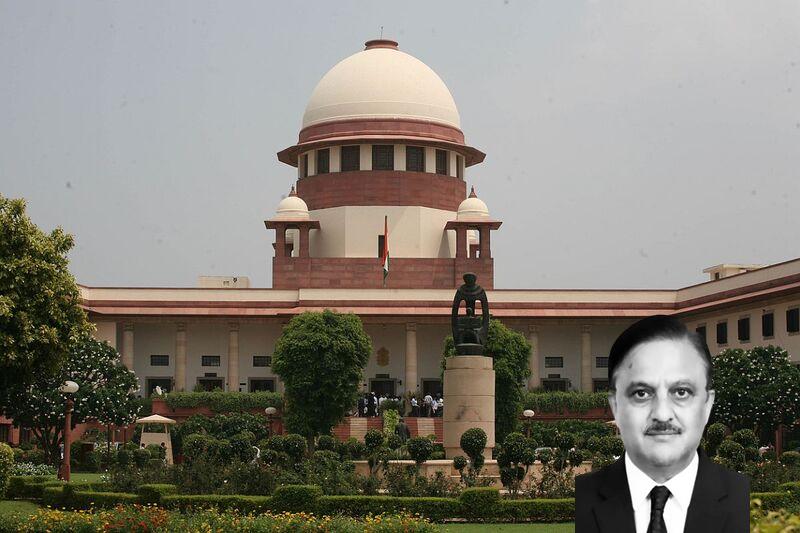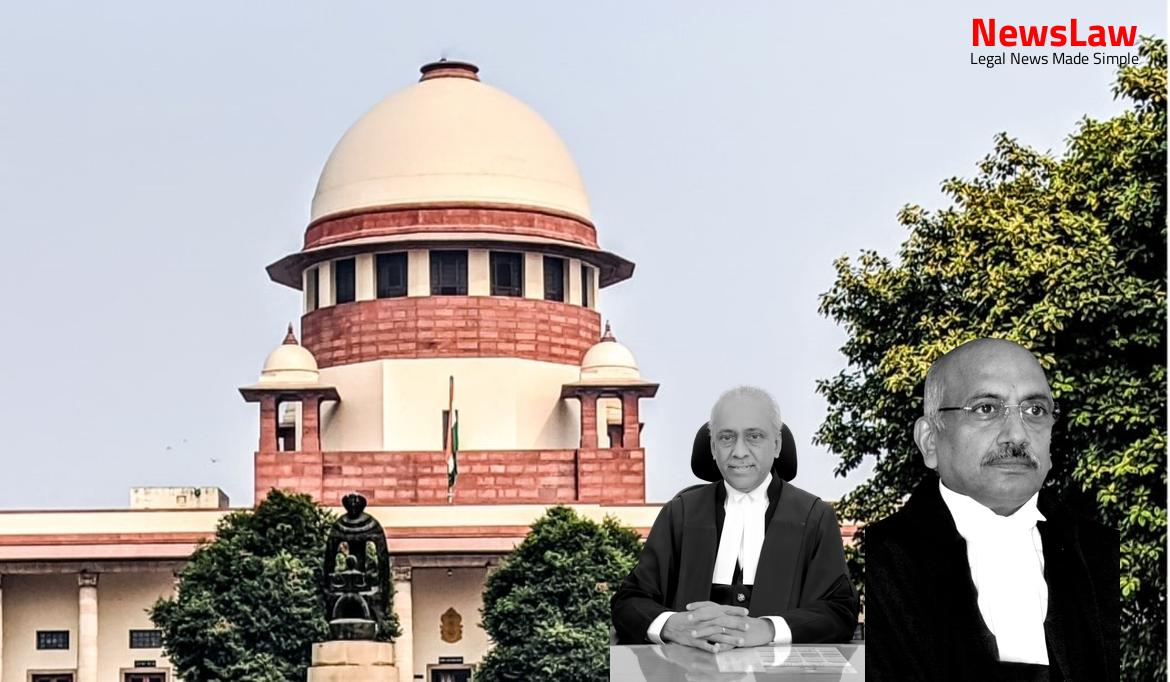The appeals before the Appellate Tribunal arose out of the orders fixing tariffs passed by the Orissa Electricity Regulatory Commission (for short, ‘the Commission’), which is constituted in accordance with Section 82 of the Electricity Act. A perusal of Section 14 shows that on an application made in accordance with Section 15, the Commission is empowered to grant licenses to (a) transmit electricity, (b) distribute electricity, and (c) undertake trading in electricity. Under sub-section (1) of Section 39 of the Electricity Act, the State Government is empowered to notify the State Electricity Board constituted under sub-section (1) of Section 5 of the Electricity (Supply) Act, 1948 or a Government Company as the State Transmission Utility. The business of bulk supply of electricity continued to vest in GRIDCO, which became a deemed distribution licensee in accordance with provisions of the fifth proviso to sub-section (2) of Section 14 of the Electricity Act, being a Government company referred to in sub-section (2) of Section 131. In this group of appeals, Civil Appeal No.414 of 2007 has been preferred by GRIDCO for challenging the order dated 13 December 2006 of the Appellate Tribunal dealing with the order of the Commission dated 23 March 2006 by which the annual revenue requirement (ARR) and bulk supply tariff (BST) for the financial year 2006-2007 of GRIDCO was finalised. 463 and 572 of 2011 for challenging the order dated 9 November 2010 of the Appellate Tribunal on appeals preferred by DISCOMS arising out of the order dated 22 March 2007 of the Commission dealing with ARR and BST of GRIDCO for the financial year 2007-2008. Civil Appeal No.2674 of 2013 has been preferred by the Commission for challenging the order dated 29 November 2012 passed by the Appellate Tribunal regarding ARR and BST of GRIDCO fixed by the Commission for the financial year 2011-2012 under the order dated 18 March 2011 on the application made by GRIDCO. Civil Appeal No.759 of 2007 has been filed by the Commission for challenging the order dated 13 December 2006 passed by the Appellate Tribunal arising out of the order dated 23 March 2006 passed by the Commission in respect of ARR and RST of DISCOMS for the financial year 2006-2007. Civil Appeal Nos.3595-3597 of 2011 are again preferred by the Commission for challenging the order dated 8 November 2010 passed by the Appellate Tribunal arising out of the order of the Commission dated 23 March 2007 in respect of ARR and RST of DISCOMS for the financial year 2007-2008. Civil Appeal Nos.1380-1382 of 2015 filed by the Commission arise out of the order dated 30 November 2014 passed by the Appellate Tribunal concerning ARR and RST order dated 22 March 2014 of the Commission for the financial year 2014-2015. The learned counsel representing GRIDCO pointed out that Civil Appeal No.414 of 2007 and Civil Appeal Nos.417 and 759 of 2007 relate to the financial year 2006-2007, which arose out of the judgment and order dated 13 December 2006 passed by the Appellate Tribunal. Subsequently, a full Bench of the Appellate Tribunal took up the appeals pertaining to tariff orders for the financial year 2007-2008 and disposed of the same by the judgments dated 8 November 2010/9 November 2010. He pointed out that until 2005-2006, DISCOMS never challenged the BST and TT, and it was only from 2006-2007 onwards that DISCOMS started challenging such orders. The submission is that since the appeals by DISCOMS challenging the RST orders have been allowed, it is not open for DISCOMS to say that GRIDCO should not get its ARR. He pointed out that in the said order, it is found that in the case of WESCO and NESCO, there is a surplus of Rs.1223.39 crores and Rs.317.39 crores, respectively. Therefore, unless the amount is passed on in the tariff as a special appropriation, no amount will be available to GRIDCO to make repayment of the principal loan amount.
He pointed out that the Commission has carried out truing-up exercise for the financial year 2007-2008, and while doing so, the Commission has taken into consideration the actual receipt and expenditure of GRIDCO. This appeal arose out of the order of the Commission of revoking the licenses granted to three DISCOMS, which the Appellate Tribunal confirmed. He submitted that the order of the Appellate Tribunal dated 13 December 2006 is contrary to the order dated 21 August 2017 passed by the Appellate Tribunal in Appeal no.
He urged that the Appellate Tribunal has not finally decided the issues raised in the appeal filed by DISCOMS against the revocation of the license order as the said order is specifically made subject to the decision in present appeals, which are pending before this Court. The learned counsel urged that the expenses proposed by DISCOMS towards execution of energy audit work, RTI expenses, spot billing, cess, etc., were never considered by the Commission while passing orders regarding ARR and tariff. Section 125 expressly provides that an appeal to this Court will lie on the grounds set out under Section 100 of the Code of Civil Procedure, 1908 (for short, ‘CPC’). Just as the High Court cannot interfere with the concurrent findings of fact recorded by the courts below in a second appeal under Section 100 of the Code of Civil Procedure, so also this Court would be loath to entertain any challenge to the concurrent findings of fact recorded by the Regulatory Commission and the Appellate Tribunal. Section 61 is the enabling provision for framing of regulations by the Central Commission; the determination of terms and conditions of tariff has been left to the domain of the Regulatory Commissions under Section 61 of the Act whereas actual tariff determination by the Regulatory Commissions is covered by Section 62 of the Act. If one reads Section 61 with Section 62 of the 2003 Act, it becomes clear that the appropriate Commission shall determine the actual tariff in accordance with the provisions of the Act, including the terms and conditions which may be specified by the appropriate Commission under Section 61 of the said Act.
If one takes “tariff” as a subject-matter, one finds that under Part VII of the 2003 Act actual determination/fixation of tariff is done by the appropriate Commission under Section 62 whereas Section 61 is the enabling provision for framing of regulations containing generic propositions in accordance with which the appropriate Commission has to fix the tariff. Section 84 of the Electricity Act has laid down the qualifications for the posts of Chairperson and members. The qualifications for the posts of Chairperson, judicial members and technical members have been laid down under sub-rule (13) of Rule 3 of the Tribunal (Conditions of Service) Rules, 2021 in view of Section 117A of the Electricity Act. (13) In case of Appellate Tribunal for Electricity under the Electricity Act, 2003 (36 of 2003), a person shall not be qualified for appointment as,- (a) Chairperson, unless he, –– (i) is, or has been, a Judge of Supreme Court; or (ii) is, or has been, Chief Justice of a High Court. (b) Judicial Member, unless he,–– (i) is, or has been, a Judge of a High Court; or (ii) has, for a combined period of ten years, been a District Judge and Additional District Judge; or (iii) has been an advocate for ten years with substantial experience in litigation in matters relating to power sector before Central Electricity Regulatory Commission, State Electricity Regulatory Commission, Appellate Tribunal for Electricity, High Court or Supreme Court.
There are appeals preferred by the Commission against the orders of the Appellate Tribunal in appeals under Section 111 of the Electricity Act. The Commission cannot be the aggrieved party except possibly in one appeal where the issue was about the non-compliance by the Commission of the orders of the Appellate Tribunal. Whether OERC acted illegally and with a mis-direction in allowing Rs.480 crores, being the principal loan amount to pass through in the BST tariff of the GRIDCO? Whether the exclusion of export earnings from the Revenue of GRIDCO is illegal and consequently the annual revenue requirement and tariff determination are liable to be modified? Whether quantum of power procurement estimated by the GRIDCO and approved by the Regulator without reference to the actuals is liable to be interfered and modified?
The Appellate Tribunal rightly observed that the amount of Rs.480.12 crores has already been passed through the cost of energy supplied in the past to DISCOMS. Therefore, while passing a fresh order in terms of the final order, the Commission will have to allow the interest on the loan to pass through, as observed above, but the principal loan amount cannot be allowed to pass through. On Question B, the Appellate Tribunal found that the revenue earned by GRIDCO from trading of surplus power outside the State cannot be excluded from the earnings of GRIDCO. On the issue regarding Simultaneous Maximum Demand (SMD) in Question G, the Appellate Tribunal observed that while 11% increase in the purchase of power by DISCOMS in the financial year 2006-2007 has been approved as compared to the purchase approved for the financial year 2005-2006, the same has not been taken into consideration for determination of SMD.
In the facts of the case, in paragraphs 15 and 16, the Appellate Tribunal rightly held that DISCOMS had the locus to challenge the order of the Commission fixing BST and ARR of GRIDCO. While recording the finding on the principal loan amount, the Appellate Tribunal rightly held that the interest will have to be taken as the cost of the loan, which should be included in the ARR but not the principal loan amount. A perusal of the order of the Appellate Authority shows that in one paragraph, this issue has been considered without referring to legal and factual contentions raised by DISCOMS, especially on the National Electric Policy and the effect of the scheme. However, on the issue of whether the Commission committed an error in not considering the sale of surplus power outside the State by GRIDCO, the Appellate Tribunal held in favour of DISCOMS on the basis of its earlier decision for the financial year 2009-2010 by the judgment dated 1 March 2012. Even on the issue of doing the truing-up exercise of GRIDCO provisionally, the Appellate Tribunal relied upon its earlier order dated 9 November 2010 and answered the issue in terms of the said decision.
The Appellate Tribunal held that the National Tariff Policy published by the Government of India on 16 January 2006 under Section 3 of the Electricity Act does not permit allowing advance against depreciation. However, the Appellate Tribunal reduced the estimated claim of Rs.36 crores allowed by the Commission to Rs.15 crores on the basis of CERC (Central Electricity Regulatory Commission) norms by holding that as per the said norms, the amount will not exceed Rs.7.5 crores. Regarding the interest on wheeling income, the Appellate Tribunal found that for the financial year 2005-2006, the Commission approved a sum of Rs.17.50 crores. Civil Appeal Nos.2939-2941 of 2011 have been preferred by WESCO, NESCO and SESCO against the impugned order dated 8 November 2010 passed by the Appellate Tribunal in Appeal Nos.55, 56 and 57 of 2007. By relying upon the National Tariff Policy, the Appellate Tribunal held that under the said policy, there is no absolute prohibition on allowing the claim for an advance against depreciation. A very detailed finding recorded by the Commission in paragraph 5.4.2 of its order, was approved by the Appellate Tribunal on facts. Firstly, we deal with the order dated 13 December 2006 passed by the Appellate Tribunal wherein the challenge was to the order dated 23 March 2006 of the Commission deciding the issue of ARR and RST of DISCOMS for the financial year 2006-2007.
The Appellate Tribunal has formulated eight questions in paragraph 8 of the order dated 13 December 2006 passed by the Appellate Tribunal. Consequently, the Appellate Tribunal issued a direction, directing the Commission to allow a difference of 4% interest payable for NTPC bonds till the tariff period as well as the instalments which had already accrued due during the financial years 2005-2006 to 2007-2008 and allow the same to pass through the tariff. As regards Question D regarding the computation of miscellaneous income in the RST order, the Appellate Tribunal, instead of deciding the said issue, directed the Commission to take it up at the time of the truing-up exercise and assess the miscellaneous income of the three DISCOMS and give consequential relief to them. The Appellate Tribunal noted that the quantum of purchase of the power by GRIDCO for DISCOMS as approved by the Commission for 2006-2007 was 11% more than what was approved for the earlier year.
As regards Question F on the distribution losses fixed by the Commission, a direction was issued to the Commission to look into the aspect by taking a practical view of the ground realities while doing truing-up exercise instead of proceeding on assumptions and surmises. Question G was regarding the failure of the Commission to compute the revenue without reference to slab and category as prescribed in the approved tariff formats. The learned counsel appearing for the Regulatory Commission in this respect merely stated that when taking up the actuals, the same will be subjected to truing up. As regards Question H, which was on the issue regarding the effect of failure to undertake the truing-up exercise for the earlier tariffs period, without deciding anything on merits, the Appellate Tribunal directed the Commission to undertake the truing-up exercise for the past three years, if not already undertaken. The Commission has preferred Civil Appeal No.3595- 3597 of 2011 against the order dated 8 November 2010 passed by the Appellate Tribunal in Appeal nos.52, 53 and 54 of 2007 preferred by DISCOMS. The issue of interest on NTPC bonds was decided in favour of DISCOMS. The Appellate Tribunal, while dealing with miscellaneous income, rightly held that as the cost of meters was not allowed in ARR, meter rent cannot be included in the miscellaneous income. As regards the truing-up of regulatory assets, the Appellate Tribunal recorded the statements of DISCOMS that they have submitted the audit of past receivables to the Commission, and on that basis, the State Commission was directed to revisit the issue.
Case Title: GRIDCO Ltd. Vs. Western Electricity Supply Company of Orissa Ltd. & Ors. etc.
Case Number: CIVIL APPEAL NO.414 OF 2007 (2023INSC872)



